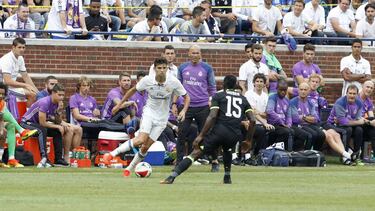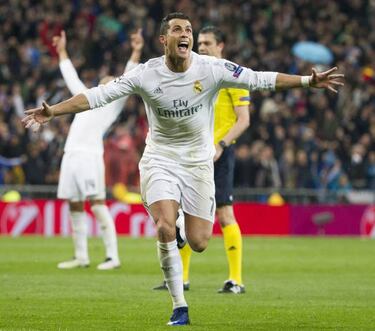A summer of youth - and a platform for future projects

A notable aspect of the summer's International Champions Cup is that it has standings that hardly anyone pays attention to, and games that get called off and won't be played. That's what happened in Beijing, where Manchester United and Manchester City were due to face off in a clash that aroused interest less in matters on the pitch - a raft of fringe and youth players were to be involved, after all - than in the grudge-match meeting of the sides' new managers, former LaLiga rivals José Mourinho and Pep Guardiola.
World's big stars absent
We're coming to the end of the tournament - and it's one that has brought together several of the world's top clubs but has had to do without most of the big stars of today. For all manner of reasons, we haven't seen Cristiano, Neymar, Bale, Benzema, Iniesta, Modric, Kroos, Ibrahimovic, Lewandowski, Neuer and many more of the players who light up competitions, raise audiences, generate publicity and spread football fever to every corner of the globe.

From a traditional football perspective, the ICC has been disappointing in sporting terms and, as far as its prestige as a tournament goes, of little significance. It's been more of a stage for the youth academies of Europe's major clubs than a real footballing contest. With the average fan scarcely concerned about the standings, about games being cancelled or about more than half of the players being all but unknown, one could be forgiven for drawing the conclusion that this is an event of scant import, a money-spinner for the clubs and a light hit of the beautiful game for those supporters who can't get through the summer without it.
Global version of the Youth League?
In a sense, the ICC has become a kind of worldwide version of the UEFA Youth League with a sprinkling of stars here and there. One imagines this was not the aim of the tournament's organisers and might well expect its standing to seriously suffer. Either football mania has reached levels that go beyond the infectious, or it's hard to believe that the world is queuing up to get a look at the likes of Maffeo, Angelinho Tasende, Banko, Green, Adarabioyo, Ikone, Kimpembe (who's a magnificent central defender, by the way), Tejero, Lienhart, Llorente, Martínez, Cámara, Mújica and the rest of a bumper group of players who'll be names one day, but for now are at best knocking on the door.

If anything has stood out in the football on show at the ICC, it's the differing levels of attention that the game's powerhouses pay to their youth set-ups, or the effect that the competitive structure in place in each country has on the development of its youngsters. Both Real Madrid and Barcelona have delivered confirmation that their 'B' teams boast players of real quality, some of whom are in a position to make the step up to the first-team squad in the near future. At worst, the majority of the young players we have seen action in Columbus, Ann Arbor and Dublin look set to be good, top-flight players.
English clubs have spared no expense snapping up kids from all over the world, but on the evidence of the ICC they suffer less from a lack of quality than from the shortcomings of the competitive structure in UK youth football. The lads at Real and Barça have adapted better to the demands of playing for the senior side than their colleagues at Chelsea and City. The other great piece of news in the youth world is the excellent academy at PSG, a club that has benefited greatly from an injection of petro-dollars in recent years but that also has a clear footballing project applied not only to its first team, but its youth system and its women's outfit too. Ikone and Kimpembe looked players of huge potential.
An answer to UEFA and a lab for future plans
The idea of a tournament for young prospects sheltered under the umbrella of their clubs' big names leads one to think of an eccentric footballing universe in which anything goes as long as you supply the right dose of publicity and media attention. But it's highly possible that the organisers of the ICC and the clubs involved are very happy with what it's bringing - even if that pleasure is not so much drawn from the victories or defeats accrued or the good performances of the youngsters.

Related stories
This event has to be interpreted as a platform for an alternative to UEFA. It was created in 2012 under another name - the World Football Challenge - and since then has remained each summer. Its continued existence is easy to understand: as well as in Europe, it's held in the United States, Australia and China (three particularly attractive countries for the development of the game), it's run by the American company Relevent Sports, which has no bones about presenting itself as an answer to UEFA, and brings together in harmony 95% of the globe's most important clubs, who are increasingly attentive to the possibility of creating their own competition and sharing out the money away from Europe's governing body.
More than a tournament, it's a laboratory for future projects. Indeed, Relevent Sports chairman Charlie Stillitano betrayed his annoyance at Leicester City's Premier League success last season, the Foxes not being your typical breed of club worthy of featuring in the International Champions Cup. The British media started to question Relevent's intentions. Leicester have taken part this year, but they certainly don't figure in the plans of the company and the continent's leading clubs.
